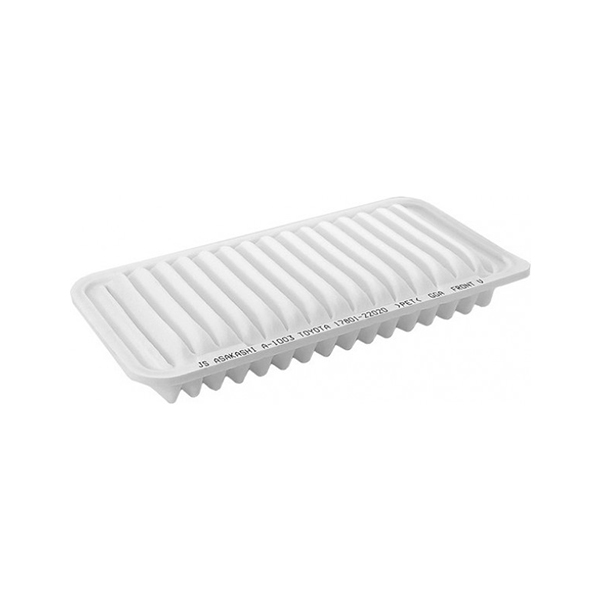Nov . 10, 2024 12:06 Back to list
Air Filtration Solutions for Sustainable Recycling Products
The Importance of Air Filters in Recycled Products
As environmental concerns continue to grow, the focus on sustainable practices becomes increasingly crucial. One such practice that has emerged as a necessity is the recycling of materials. Recycling not only reduces waste in landfills but also conserves natural resources and energy. However, an often-overlooked aspect of the recycling process is the quality of the air produced during and after the recycling of materials. This is where air filters come into play.
Air filters are devices designed to remove contaminants from the air, ensuring that the air we breathe is clean and safe. In the context of recycling, air filters play a vital role in controlling the emissions released during the recycling process. The recycling of products, especially plastics and metals, can release harmful pollutants into the atmosphere. These pollutants include volatile organic compounds (VOCs), particulate matter, and other toxins that can have detrimental effects on both human health and the environment.
Types of Air Filters Used in Recycling
There are several types of air filters employed in the recycling industry, each tailored to address specific air quality issues.
1. HEPA Filters High-Efficiency Particulate Air (HEPA) filters are designed to capture at least 99.97% of particles that are 0.3 microns or larger. These filters are crucial for removing fine particulate matter that can cause respiratory issues and other health problems. In recycling facilities, HEPA filters are often used in conjunction with other filtering systems to ensure optimal air quality.
2. Activated Carbon Filters These filters excel in adsorbing chemicals and gases from the air, including VOCs and unpleasant odors. They are particularly useful in recycling operations that process materials like plastics which can off-gas harmful pollutants. By using activated carbon filters, recycling facilities can significantly reduce the negative impact on air quality from their operations.
3. Wet Scrubbers These systems use a liquid solution to capture and neutralize gases and particulates from the air stream. Wet scrubbers are effective in removing acidic gases and can also help manage odors. They are particularly advantageous in facilities that process organic waste or materials with high levels of volatile emissions.
Benefits of Air Filters in Recycling Operations
air filter for recycle products

The implementation of effective air filtration systems in recycling processes brings about numerous benefits
1. Improved Air Quality By reducing airborne contaminants, these filters help in maintaining better air quality in and around recycling facilities. This not only protects the health of workers but also benefits nearby communities.
2. Regulatory Compliance Many regions have strict regulations regarding air emissions. Utilizing advanced air filtration technology ensures that recycling facilities comply with these regulations, avoiding potential fines and legal issues.
3. Enhanced Worker Safety Workers in recycling facilities can be exposed to hazardous air pollutants. Installing effective air filters mitigates this risk, creating a safer working environment and improving overall employee health and morale.
4. Environmental Protection Air filters help in minimizing the release of pollutants into the atmosphere, contributing to broader environmental protection efforts. By managing emissions efficiently, recycling facilities can play a part in combating climate change and protecting ecosystems.
5. Public Perception As consumers become more eco-conscious, the transparency of recycling processes is increasingly important. Facilities that prioritize air quality through filtration systems can enhance their public image, showcasing their commitment to environmentally responsible practices.
Conclusion
Air filters are a critical component of the recycling process, ensuring that the push for sustainability does not come at a cost to environmental and public health. By effectively removing harmful pollutants, these filters facilitate cleaner air and safer working conditions. As the recycling industry continues to evolve, the significance of air quality management will undoubtedly become more pronounced. Emphasizing the development and implementation of advanced air filtration systems will not only support recycling initiatives but also contribute to a greener, healthier planet.
In conclusion, investing in air filters for recycled products is not merely a regulatory obligation; it is a moral imperative that aligns with the overarching goal of creating a sustainable future where recycling can thrive alongside a healthy environment.
-
OEM PLXB-1 PU Pack Trimming Machine - High Precision, Durable, Cost-Effective Solutions
NewsJun.10,2025
-
High-Performance In Line Fan Filter Trusted In Line Fan Filter Company & Products
NewsJun.10,2025
-
High-Efficiency Water Filter Making Machine Reliable Companies & Products
NewsJun.10,2025
-
Premium Metal Fuel Filter Durable & Efficient for Engine Protection
NewsJun.10,2025
-
Premium OEM 304 Rimmed Filter Disc Custom Stainless Steel Filters
NewsJun.10,2025
-
China PP Air Filter Production Line Automated & High-Efficiency Solutions
NewsJun.10,2025
